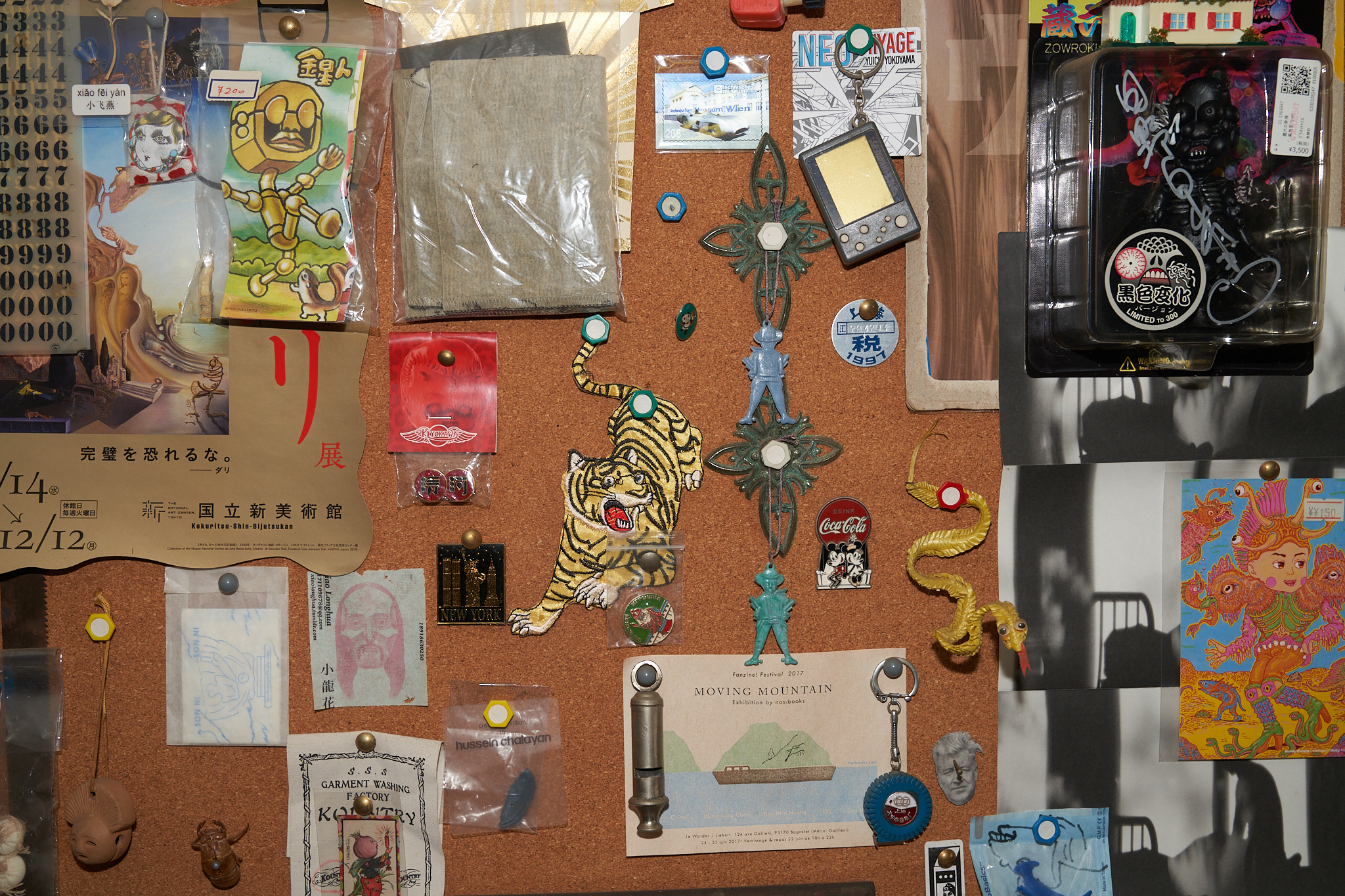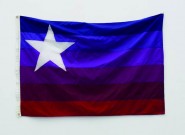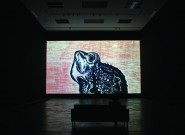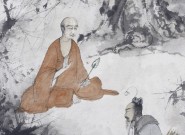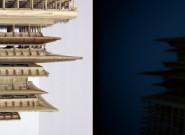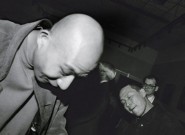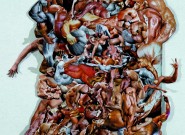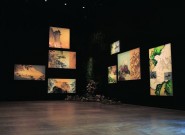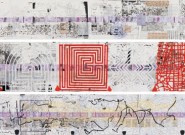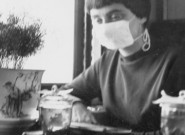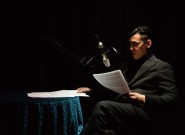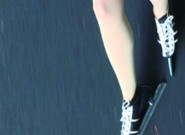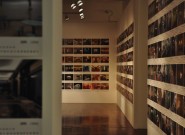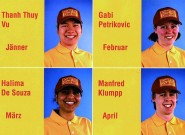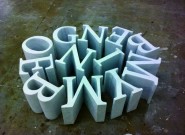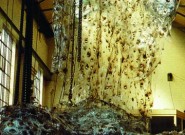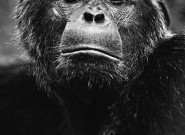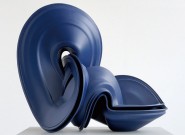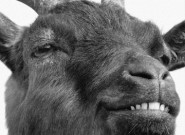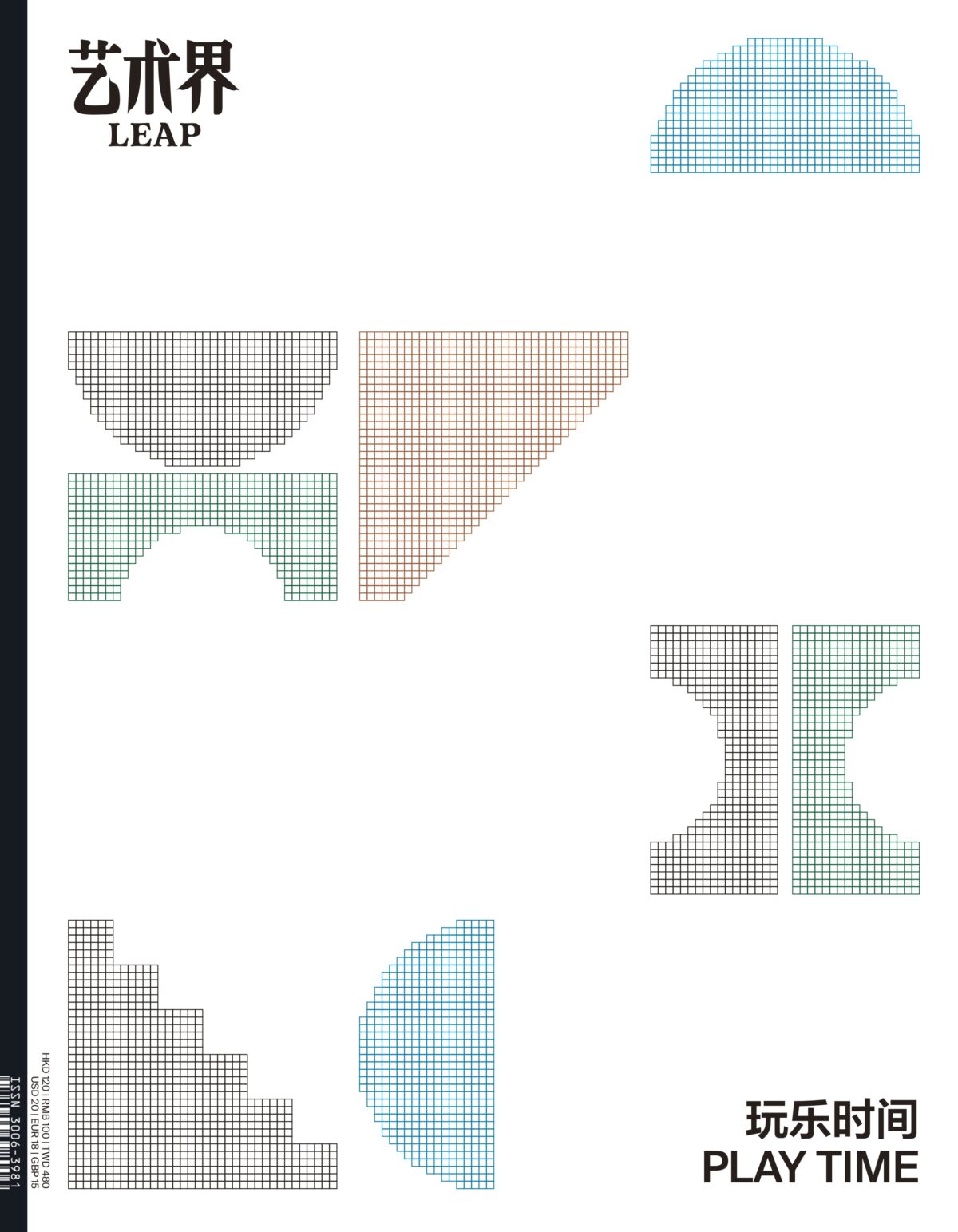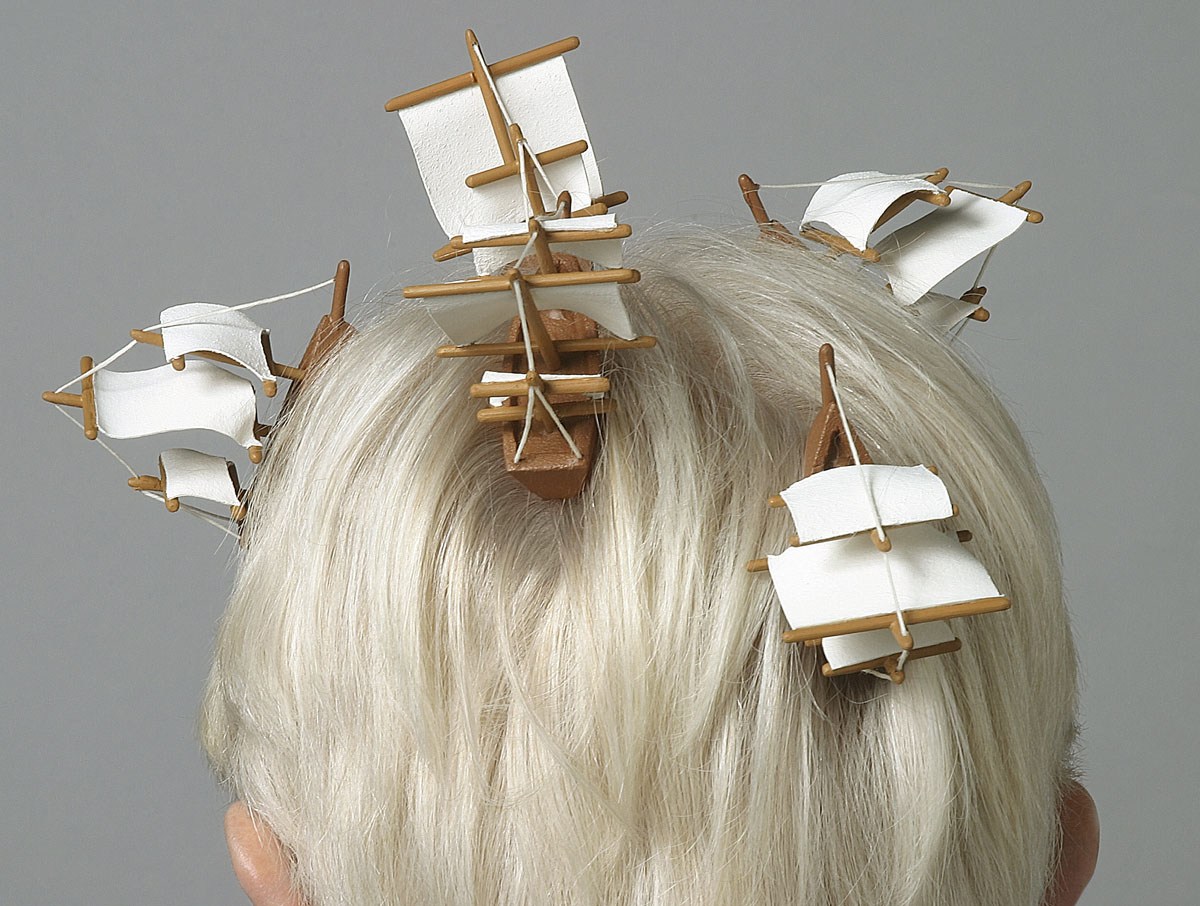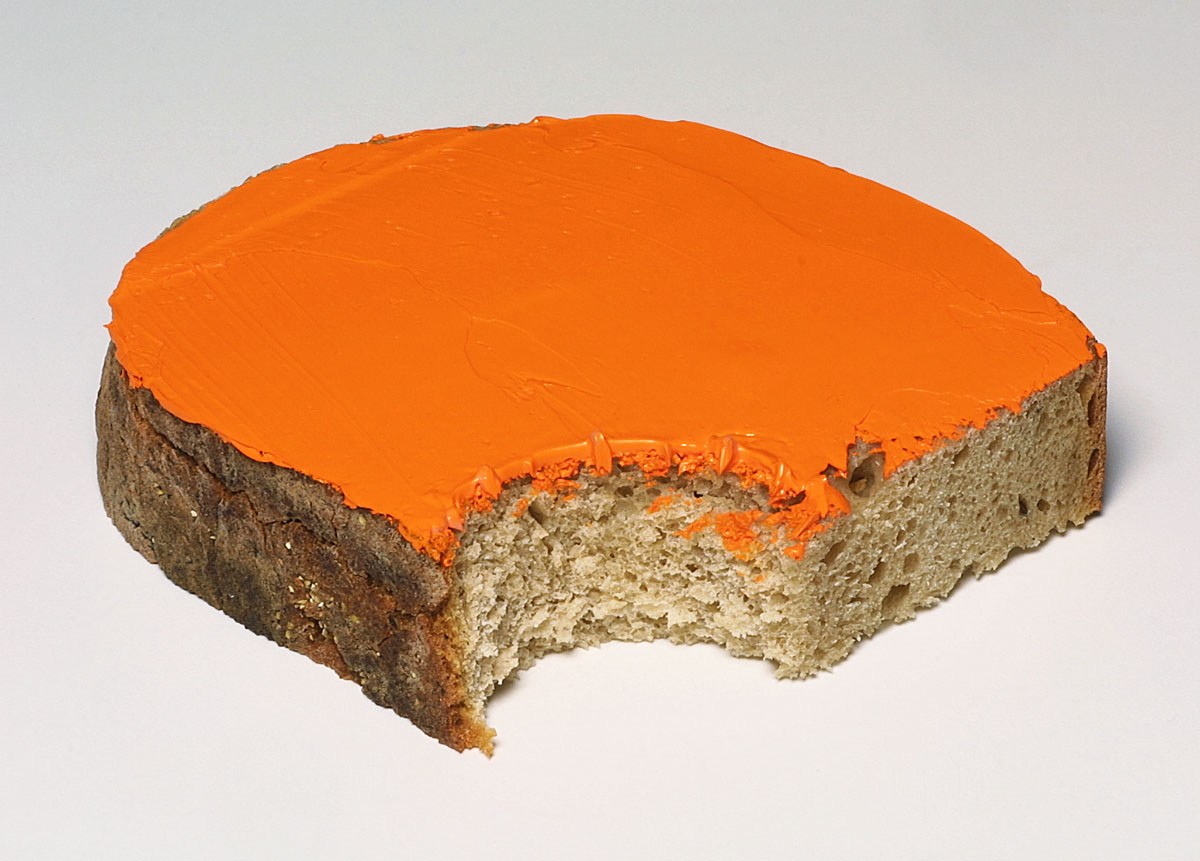THE BOSTON EXHIBITION— 12 abstract paintings, in context with 58 figurative paintings showing 200 years of American art— jolted the Chinese public and artists out of the Soviet and Socialist Realism then permeating the academies in the period following the Cultural Revolution. The artists had no frame of reference to absorb these new art forms,…
Read MoreIn 1942, Mao Zedong spoke to the encampment of a burgeoning Communist Party of China in Shaanxi province, in what would later be heralded as the “Yan’an Talks on Literature and Art.” At the time, the American scholar Joseph Nye was five years old. Half a century would pass before he, as dean of Harvard’s…
Read MoreBoers-Li Gallery has ventured into discourses of ideological hegemony and its propagation in the new group show, “Ministry of Truth.” The modest collection of works seeks to challenge narratives that sustain both political and personal power structures, featuring artists working in and across North America, Europe, and Asia. But if the exhibition’s goal is to…
Read MoreFor Mainland Chinese viewers who are new to Sun Xun’s work, Some Actions Which Haven’t Been Defined Yet In The Revolution offers an unforgettable experience, akin to a waking dream. Coursing through the film’s narrative is the logic of dreams, its landscape a torrent of ineffable, dark emotions. The soundtrack— created by Jin Shan— only…
Read MoreImagine the French Revolution hadn’t come until 1949. Suppose also that the Academy established in the late seventeenth century had continued to guide art education. Assume, in addition, that when political change finally arrived, an artist trained in these old master traditions had to suddenly adapt to a new ideological climate. Instead of depicting scenes…
Read MoreIn his later years, the Sui-dynasty Emperor Yang built a labyrinthine palace (“mi lou”), with “winding yards and twisting halls, each one leading to the next; hearths and rooms in the tens of thousands, all adorned with shining jade.” A place this beautiful was also a place meant to render its guests lost within its…
Read MoreARTISTIC PHARMACOLOGY At last year’s Venice Biennale, five Chinese artists set out to represent their country through the olfactory. Visitors to the state-sponsored China Pavilion were confronted with a country abstracted into tea, baijiu, lotus, medicinal herbs, and incense. Even by the standards of contemporary art’s very own Olympics, this reliance on cultural signifiers was…
Read MoreThe title of this exhibition,“Boy: A Contemporary Portrait,” connotes something provocative. The combination of “boy” and “contemporary” deserves particular mention, opening up the kind of discussion that could either become elevated and abstract, or be summed up briefly and succinctly. The exhibition “politely refused” the participation of female artists, thereupon automatically presenting itself as some…
Read MoreThere is quite a bit of overlap between Yang Mian’s “CMYK” and He Sen’s “Conversing with The Moon,” two solo exhibitions separated by the Chinese New Year. Both artists are graduates of the Sichuan Fine Arts Institute, both invited Lü Peng to act as curator, both opted for similar publication formats (each providing one exhibition…
Read MoreFor thousands of years, the book has been a vehicle for the unbounded exploration of objective knowledge and experience and subjective feeling and imagination. Often books convey truths or tenets that, although they cannot be proven, come to the author in a flash of insight. Seen this way, the concept of an “artist’s book” might…
Read MoreIn 1957, the filmmaker Agnès Varda assumed the role of photographer during a two-month journey around both urban and rural China with a delegation of French dignitaries. Fifty-five years later, Varda resolved to display the photographs she took during that trip as part of the exhibition “The Beaches of Agnès Varda in China,” and in…
Read MoreIn the past couple of years, performance art has seen a resurgence in popularity on the international art scene, at the same time igniting in China renewed enthusiasm for theoretical writings, especially translated texts. Li Ran’s recent solo exhibition stands at the crossroads of these two trends. The exhibition’s title is directly borrowed from Cézanne’s…
Read MoreThe decision by Ma Qiusha to call her new solo exhibition “Static Electricity” was not one born of careful deliberation. It was made after accidentally coming across the term in a book during an anxious search for a title for her new exhibition. The objects and experiences implied by the term “static electricity” themselves bear…
Read MoreHeman Chong’s practice, concisely stated on his website, “… involves an investigation into the philosophies, reasons and methods of individuals and communities imagining the future.” Presented at the NUS museum in Singapore, “Calendars (2020-2096)” is a full embodiment of this credo. Consisting of 1,001 color images of public interior spaces in Singapore he visited over…
Read MoreIn 1949, as he was boarding a plane to leave China, David Diao saw a sign that read “One suitcase per person.” He later made a painting bearing those words, which provide the inspiration for the title of this exhibition. The simple phrase evokes travel, baggage and the individual. It is the starting point for…
Read MoreContextually underpinning Leung Chi Wo’s first solo exhibition in London, “We Must Construct as Well as Destroy,” is Aston Webb, an architect whose text published in the book London of the Future (1921) forms the exhibition title. In Aston Webb’s Prophecy (2011), a photograph of the Webb-designed Hong Kong Legislative Council (LEGCO) Building is presented…
Read More“2009-05-02” was the last series of work produced by Gu Dexin before he chose to retire from the art world completely. The title of the work came straight from the designated time frame for the exhibition at Galleria Continua Beijing— Gu frequently implements this policy, naming his works after simple external circumstances in order to…
Read MoreGIORGIO AGAMBEN Born in 1942, Giorgio Agamben currently teaches at the Università Iuav di Venezia, the Collège International de Philosophie in Paris, and the European Graduate School in Saas-Fee, Switzerland. In works including Homo Sacer and The State of Exception he furthered Foucault’s and Arendt’s explorations of political philosophy, while his…
Read MoreThe earliest encounter between Tony Cragg and Chinese audiences was in 2005 during the second Beijing International Art Biennale, where the British sculptor won First Prize. Perplexingly— especially as this exhibition functioned also on the diplomatic level, as part of the British Council’s UK Now festival, but also because Cragg himself often cites it alongside…
Read MoreApart from housing ShanghART Taopu Warehouse and artist studios, the Taopu art district has also served as the setting for two major exhibitions by local artists: “Future Festival,” and “TOP Contemporary Art Events.” The former was the brainchild of artists Ding Li, Jin Feng, Shi Qing, Yang Zhenzhong, Xu Zhen, and Zhou Xiaohu, among others,…
Read More